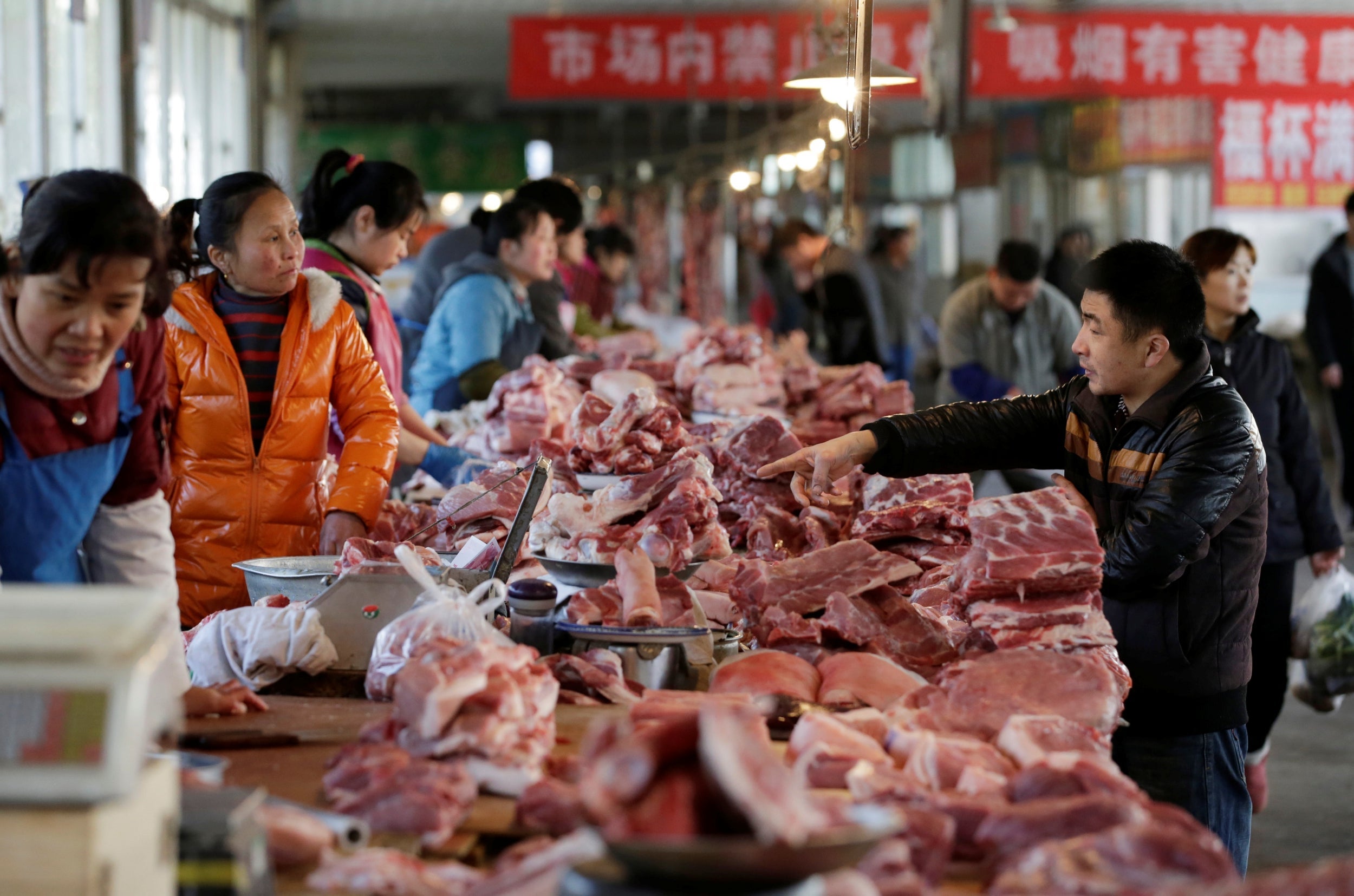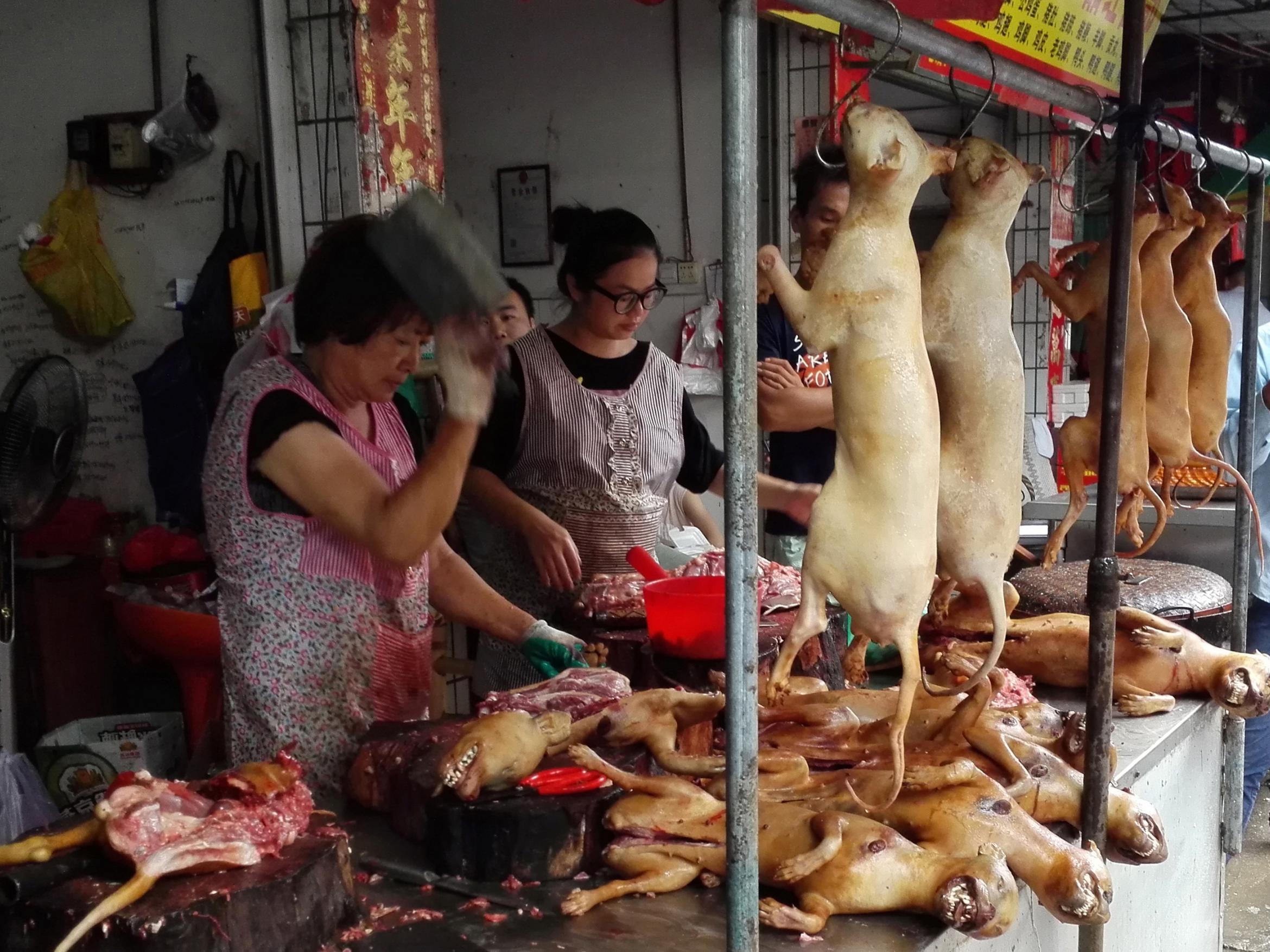Yulin Dog Meat Festival: What is it, how did it start and will activists ever manage to get it banned?
Graphic content: More than 10,000 dogs eaten during event

Your support helps us to tell the story
From reproductive rights to climate change to Big Tech, The Independent is on the ground when the story is developing. Whether it's investigating the financials of Elon Musk's pro-Trump PAC or producing our latest documentary, 'The A Word', which shines a light on the American women fighting for reproductive rights, we know how important it is to parse out the facts from the messaging.
At such a critical moment in US history, we need reporters on the ground. Your donation allows us to keep sending journalists to speak to both sides of the story.
The Independent is trusted by Americans across the entire political spectrum. And unlike many other quality news outlets, we choose not to lock Americans out of our reporting and analysis with paywalls. We believe quality journalism should be available to everyone, paid for by those who can afford it.
Your support makes all the difference.The Yulin “Lychee and Dog Meat” festival is an annual 10 day event where over 10,000 dogs are eaten. Cat meat, fresh lychees and liquor are also available at the festival.
The event in this remote part of southern China has proved to be very controversial in recent years, particularly in the wake of the coronavirus pandemic.
When and where does it take place?
It takes place in Yulin, a city in the Guangxi province of China, and runs from the 21 to 30 June during one of the hottest weeks of the year.
How did it start?
The first festival took place in 2009 to mark the summer solstice. Dog eating is traditional in China, and according to folklore eating the meat during the summer months brings luck and good health. Some also believe dog meat can ward off diseases and heighten men’s sexual performance.
What is the controversy surrounding it?
The festival has attracted widespread negative coverage within China and internationally. Activists have reported that animals are slaughtered inhumanely using clubs in public and that hygiene practices at the festival do not fall in line with Chinese regulations. There are also complaints that dogs are brought to Yulin from across China in cramped conditions, and festival visitors have reported seeing some animals with collars, indicating they are stolen pets.
The World Health Organisation has warned that the dog trade spreads rabies and increases the risk of cholera.
Is it seen differently in China?
Eating dogs is not illegal in China. Around 10 to 20 million are killed for human consumption every year and although the festival is new the custom can be traced back at least 400 years. But attitudes are changing. Keeping dogs as pets was banned during the Cultural Revolution, but dog ownership has become popular among China’s growing middle-class; there are now 62 million registered as pets. Animal activists, celebrities and younger Chinese citizens have been increasingly vocal on social media about opposing dog eating festivals and the practice in general.
Will activists get their wish and see it stopped?
The Yulin Municipal Government has repeatedly said that it is not able to stop the festival as it claims it does not exist as an official event.
But a 2017 survey revealed that in Yulin, nearly three-quarters of people don’t regularly eat dog meat despite efforts by traders to promote it. A 2016 nationwide survey found that 64 per cent of Chinese citizens wanted the Yulin festival shut down and 69.5 per cent have never eaten dog meat.

Will Yulin follow Shenzhen and Zhuhai and ban the consumption of dog meat?
Lat month, China’s government has called dogs “companions” and reportedly signalled a wider ban on dog meat consumption was ahead.
Dr Peter Li, HSI’s China policy specialist, said that the Yulin festival was a “bloody spectacle [which] does not reflect the mood or eating habits of the majority of the Chinese people”.
He said: “Now that the Chinese government has officially recognised dogs as companions and not livestock, we are hopeful that China will take stronger steps to hasten the end of the dog and cat meat trade for which millions of animals continue to suffer every year.
“The announcement presents cities across China with the perfect opportunity to act upon the government’s words by protecting dogs and cats from the meat trade thieves and slaughterhouses.”
China’s ministry of agriculture noted that the United Nations Food and Agriculture Organisation’s livestock list does not include dogs and said that internationally, dogs are not treated as livestock.
In April, the cities of Shenzhen and Zhuhai, were the first in China to officially ban the consumption of cat and dog meat.
The coronavirus outbreak started in Wuhan, China late last year. Covid-19 is thought to have originated in horseshoe bats and passed to humans via an intermediary species.
In response to the outbreak, China issued a temporary ban on all trade and consumption of wild animals and is considering revising legislation to make the ban permanent.
Join our commenting forum
Join thought-provoking conversations, follow other Independent readers and see their replies
Comments